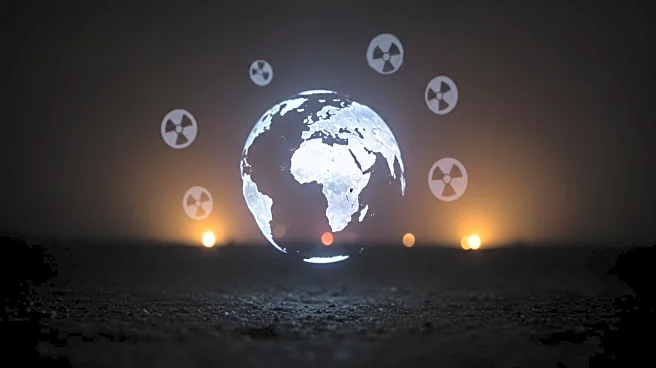What's Happening?
Over 2,000 nuclear weapons tests have been conducted globally since the advent of the nuclear age, with significant health and environmental consequences still being felt today. In the United States, individuals living near the Nevada test site, known as 'downwinders,' have experienced increased rates of cancer and other health issues due to radiation exposure. Similar impacts are observed in other regions, such as the Marshall Islands, where nuclear tests have led to long-term health and environmental damage. The legacy of these tests continues to affect communities, with ongoing debates about compensation and recognition for affected populations.
Why It's Important?
The historical nuclear weapons testing has left a lasting impact on public health and the environment, highlighting the need for continued attention to nuclear safety and remediation efforts. The affected communities, often marginalized, face ongoing health challenges and require adequate compensation and support. This issue also raises broader questions about the ethical implications of nuclear testing and the responsibilities of nuclear powers to address the consequences of their actions. The situation underscores the importance of international cooperation in addressing nuclear legacy issues and preventing future harm.
Beyond the Headlines
The nuclear testing legacy also poses significant cultural and psychological impacts on affected communities, with many individuals experiencing trauma and loss. The environmental degradation caused by these tests has altered ecosystems and displaced populations, leading to long-term socio-economic challenges. The ongoing struggle for recognition and compensation reflects broader issues of justice and accountability in the context of nuclear policy. As global attention to nuclear disarmament and non-proliferation grows, these historical impacts serve as a critical reminder of the human and environmental costs of nuclear weapons.









